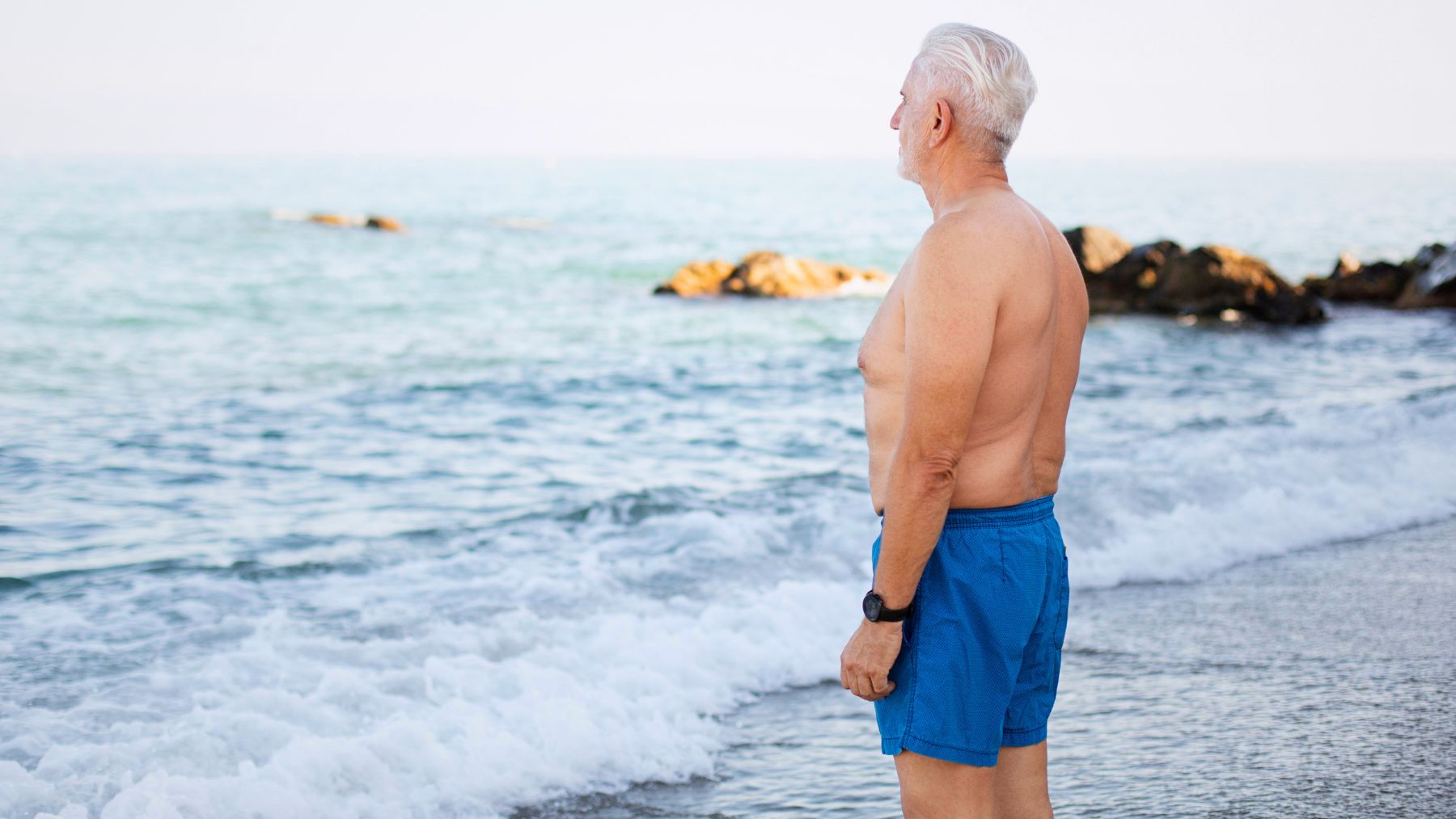Swimming is one of the best ways to stay active and cool during the summer for older adults. But when you’re over 60, even a simple swim at the beach or pool can carry hidden risks if you’re not careful. There’s one tip experts recommend that is easy to remember and can help prevent a serious situation.
Here, we’ll explain how floating on your back and kicking gently with your legs—rather than pushing yourself when tired—can reduce the risk of drowning at the beach. We’ll also show how to apply a similar approach in the pool, and cover other practical water safety habits for older adults who want to enjoy the summer with more peace of mind.
Don’t push yourself, float your way back
The most effective thing you can do if you get tired in the sea isn’t to power through or try to swim. Experts warn against overestimating your physical condition or swimming ability. What works for you in a pool doesn’t always translate to the ocean, especially if there’s current or wind.
If you’re swimming in the sea and find yourself getting tired or struggling to return to shore, flip onto your back. Let your body float, and use your legs to gently kick and steer yourself in the right direction. This back-floating technique gives your arms a break and helps you breathe more easily. It buys time, reduces panic, and keeps you moving toward safety.
In pools, the risk is different but still real if you’re swimming alone. You may not need the back-float to get to safety, but the lesson still applies: know your limits. If you feel winded or cold, get out. If you’re swimming laps, pace yourself. Staying aware of your body is just as important as knowing the depth of the water.
Other tips for older adults to prevent drowning
Along with knowing how to respond when you’re tired, there are other habits that can lower your risk in and around the water.
- Stick to beaches and pools with lifeguards: It sounds obvious, but too many people skip this. Trained lifeguards can respond fast if something goes wrong, and their presence alone makes things safer.
- Don’t swim alone: Whether it’s the ocean or a pool, always swim with someone else. If anything happens, they can get help immediately.
- Respect the flag system at the beach: Never swim if the red flag is up. Yellow means caution, so stay close to shore. Green means it’s safe, but don’t let your guard down.
- Watch alcohol intake: Even small amounts of alcohol can slow your reaction time and affect your balance. If you’re planning to swim, skip the drinks.
- Use a swim vest if you’re not confident: If you’re not a strong swimmer or have health issues, a swim vest gives you safety without making you feel restricted.
- Avoid headfirst jumps in unknown waters: This can cause spinal injuries. If you’re not sure how deep it is, don’t risk it.
The goal isn’t to scare you away from the water, but to help you enjoy it safely. Know your limits, stick to safe spots, and don’t be afraid to slow things down so you can keep swimming well into your 60s, 70s, and beyond.

